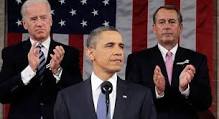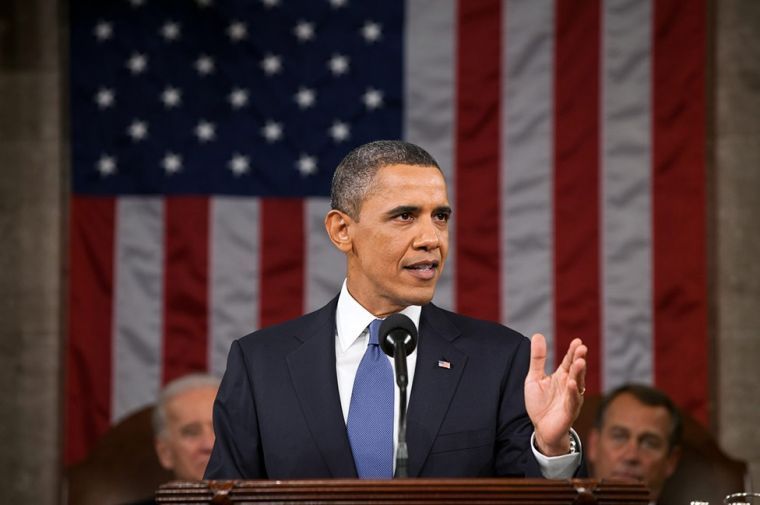On Jan. 28, President Barack Obama delivered his fifth State of the Union address in the House Chamber in Washington, D.C. The president reported on the condition of the nation, outlined the legislative agenda, and spoke about the national priorities for the years to come.
“Business leaders around the world have declared that China is no longer the world’s number one place to invest — America is,” said President Obama. He explained the current state of the country and his administration work over the past few years. “America is better positioned for the 21st century than any other nation on earth,” he claimed.
Afterwards, the president shifted his focus on the need to continue with this progress in order to close the inequality gap between the rich and the poor. He then urged Congress to make 2014 a year of accomplishment.
“Let’s make this a year of action,” President Obama said. “That’s what most Americans want — for all of us in this chamber to focus on their lives, their hopes, their aspirations.”
The president went on to address several issues ranging from increasing the minimum wage, reforming the immigration system, providing greater access to better preschools, and to also continue to help the middle class.
“What I offer tonight is a set of concrete, practical proposals to speed up growth, strengthen the middle class, and build new ladders of opportunity into the middle class,” said President Obama.
The president also addressed the issue of income inequality in the workplace between men and women, calling it an “embarrassment” and describing it as “wrong.” As he put it, “a woman deserves equal pay for equal work.”
President Obama said he will take action, with or without Congress. “I am committed to making Washington work better and rebuilding the trust of the people who sent us here,” he said. “Wherever and whenever I can take steps without legislation to expand opportunity for more American families, that’s what I am going to do,” he added.
“This Congress has been the least productive in history, and the legislation that it has passed has come usually after much drama and false starts,” said Luis Jimenez, a political science professor at the University of Massachusetts Boston.
Jimenez explained that there’s often a complex opposition in the House when it comes to getting America back to work or passing any major bill that will favor the middle and lower-class to move forward. Professor Jimenez believes this opposition comes down to institutional and ideological incentives on the Republican Party.
“There’s much to be gained from opposing anything the President proposes,” Jimenez said. He explained that the reasons are because of the way the districts are drawn as well as a greater danger for a Republican to suffer a primary challenge then for him or her to suffer a loss in the general election.
“The President is at the mercy of the Congress. He’s pretty much left begging, cajoling, and otherwise berating Republicans (and on rare occasions, Democrats) for not working with him,” concluded Jimenez.
“There are millions of Americans outside Washington who are tired of stale political arguments, and are moving this country forward,” added President Obama.
President Obama vows to issue an executive order requiring an increase in the minimum hourly wage from the current $7.25 to at least $10.10 an hour for federally funded work. “Americans overwhelmingly agree that no one who works full time should ever have to raise a family in poverty,” he explained.
President Obama also spoke of immigration reform. “If we’re serious about economic growth, it is the time to heed the call of business leaders, labor leaders, faith leaders, and law enforcement and fix our broken immigration system,” he stated.
He explained that independent economists estimate that the immigration reform will increase the country economy and shrink the deficits by almost a trillion dollars in the next two decades. “So let’s get immigration reform done this year,” he concluded.
There are many other issues that the president addressed in his speech including climate change, manufacturing, cybersecurity, introducing more checks on gun buyers, and improving the early childhood education programs.
Photo courtesy of google images.


